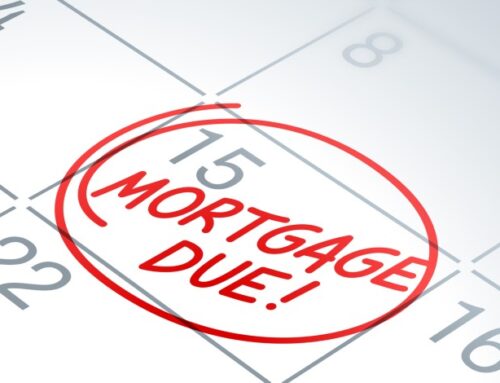If you have home ownership dreams, you have options in addition to purchasing a home outright at this moment. Rent-to-own homes enable aspiring homeowners to save more money towards a down payment while renting space in the house they intend to buy.
It’s helpful to know about all your homebuying options since rent-to-own homes may make sense for your financial situation and your home ownership goals. This guide explains how the rent-to-own process works, what types of agreements are available and how you can begin if the rent-to-own concept appeals to you. Read on to learn about your options.
What Are Rent-To-Own Homes?
Rent-to-own homes are homes where the landlord is open to renting their home to a tenant for an agreed-upon amount of time, with the expectation that the tenant will purchase, or will at least have the option to purchase, the home once the lease ends. Generally, rent-to-own agreements last around one to three years.
Each month, the rental amount will typically be above fair market value. The extra money paid toward rent will apply toward a down payment toward the home purchase. Those additional funds are usually stored in an escrow account. If the home sale doesn’t go through, the renter forfeits the extra rent money they’ve paid.
There are many reasons why a homeowner may choose to sell their home in a rent-to-own arrangement. The real estate market can make a significant impact on that decision. For example, if a homeowner has been unsuccessful in selling their home, a rent-to-own arrangement may appeal to them since they’ll have an expected sales date and can collect rent payments until then.
Sometimes, a landlord of a rental home may be amenable to selling their home if their tenants express interest in buying it, and they create a rent-to-own arrangement. A real estate agent who works in the area where you want to live will better understand what rent-to-own homes are available.
What Are The Types Of Rent-To-Own Contracts?
There are two types of rent-to-own contracts. Each one has its benefits, depending on what your needs are.
Lease-Option Agreement
With a lease-option agreement, the tenant of the home can purchase the property when the lease ends. The renter pays the homeowner an option fee upon signing the agreement, which typically amounts to between 2% to 7% of the total purchase price.
In some cases, the option fee amount will go toward the down payment upon purchasing the home. As the renter lives in the home, the extra rent money, also known as “rent credits,” apply toward the future down payment of the home.
Once the lease is completed, the renter can walk away from the option, which means they’ll have lost their rent credits and will have also paid an option fee without going through with the purchase. At the end of the lease-option agreement, the renter and homeowner can negotiate a home sales price if the renter still wants to purchase the home.
Lease-Purchase Agreement
A lease-purchase agreement solidifies the intent of the renter to go through with the full purchase of the home once the lease ends. A home sales price is determined before the lease-purchase agreement is signed.
By signing the lease-purchase agreement, the tenant is legally obligated to buy the home. If the tenant tries to back out, the homeowner can pursue legal action against the renter.
Similarly to a lease-option agreement, a renter in a lease-purchase agreement also pays extra money toward rent, which becomes rent credits that go toward paying the home’s down payment. In addition to the risk of being sued for not buying a home at the end of a lease-purchase agreement, a renter will also lose all rent credits if they cannot buy the home at the end of the lease.
How Does Rent To Own Homes Work In Arizona?
If you’re wondering how does rent to own homes work in AZ, many of the same steps in the traditional homebuying process apply. You’ll want to make sure you understand what a realistic purchase price is for you, ensure you can meet the terms of the agreement and have a strong desire to purchase the home you’ll be renting once the agreement ends. The following steps outline what to expect.
1. Connect with a real estate agent
Rent-to-own homes aren’t as plentiful compared to homes available strictly for renting or purchasing. You’ll want to connect with a real estate agent who can help you find rent-to-own homes in your desired location that fit your budget.
A real estate agent can also help you negotiate a home’s sales price, whether at the beginning of a lease-purchase agreement or once a lease-option agreement ends. As you build a relationship with your agent, they’ll better understand what your home goals are and can help you achieve them.
2. Get preapproved
You’ll want to know how much home you can afford once the terms of your rent-to-own agreement are finished, and it’s time to purchase a house. You may estimate that you’ll have higher earning potential or a better credit score in a few years, but getting a clear picture of what you can afford now can help ensure you stay within budget so you can complete the terms of your agreement once the lease ends.
If you want a rent-to-own agreement so you have some time to save more money and improve your credit score, you may get a better loan closer to when the lease ends. But getting preapproval now can help set up your expectations for how much home you can afford and whether rent to own is the best fit for you.
When you prequalify for a mortgage, you can also begin a relationship with a lender that will help once you’re ready to get a home loan.
3. Decide between lease-option and lease-purchase
Lease-option and lease-purchase agreements each have their own unique advantages. If you’re not 100% sure you’ll want to purchase a home at the end of your lease, a lease-option agreement makes more sense. But you still risk losing money from the option fee and rent credits if you don’t follow through. Also, if you don’t agree to a home price early on, there’s a risk that the price could go up significantly by the time you’re ready to buy.
A lease-purchase agreement can help you save money if you lock in a lower price earlier. There is the expectation that you will purchase the home after your lease, though. If you’re not completely ready to do that, a lease-option agreement may be better.
Consult with your real estate agent on what type of agreement makes the most sense for your unique situation. Some things you’ll include in a rent-to-own agreement are:
- Time period for rent-to-own
- The home’s purchase price, or when it will be determined
- The option fee, if applicable
- The rent amount and rent credits to expect to accumulate
Once you’ve signed the agreement, you can move in with the knowledge that the extra money you’ll be paying in rent above fair market price will be going toward your future down payment for the home purchase.
The Pros And Cons Of Rent-To-Own
As you consider whether the rent-to-own concept is right for you, keep these pros and cons in mind.
Pros of rent-to-own homes
- Repairs: A major benefit of rent-to-own homes is that you may be able to get some repairs taken care of by the landlord while you’re still renting. If you were to buy a home that needed repairs, you’d be responsible for paying for those repairs after you move in and own the home. In a rent-to-own home, you could work out an arrangement with your landlord to help cover some of the repairs while you’re in the tenant phase.
- Savings: Being in a rent-to-own agreement gives you more time to save money toward a down payment. Instead of having to have all the money now, you’ll automatically add money to the down payment total during the rental period. You can also focus on saving more before purchasing the home, so you can potentially get better mortgage terms from your lender.
- Credit score: Speaking of better mortgage terms, generally, the higher your credit score, the better terms you may be able to get. The rental period is also when you can work on building up your credit score to improve your standing with a lender.
- Trial period: You may not be 100% sure you want to purchase a home. In a lease-option agreement, you have the option to walk away at the end of the lease. You will lose the option fee and rent credits, but you’ll be able to live in your home for a trial period to see if it’s one you want to buy. During the lease period, you can learn more about the home, the neighborhood, access to amenities and more, so you can be confident once it comes time to buy the home.
Cons of rent-to-own homes
- Risk: There are major risks if you’re not able to purchase the home at the end of your lease, whether it’s because you don’t want to purchase the home or you’re not able to get the financing you need to do so. If you have a lease-option agreement, you can lose the money you’ve paid toward the option fee and toward the rent credits. If you have a lease-purchase agreement, you could get sued and lose the rent credits. It’s better to pursue a rent-to-own arrangement if you’re sure you want to purchase the home.
- Cost: There’s also a risk that, if you negotiate a home price later, you could end up paying a higher sales price than if you just purchased a home outright now. A higher future sales price could jeopardize your ability to secure a mortgage and fulfill your rent-to-own terms. Or, you might agree to a high home price now, and the value of the home ends up plummeting by the time you become a homeowner. Also, some agreements will cause you to lose your rent credits if you’re late with rent payments. Completing a home purchase may save you money compared to entering a rent-to-own agreement, which means it may make more sense to rent and save or buy a cheaper home now.
- Scarcity: Depending on where you’re looking for rent-to-own homes in Arizona, you may have less desirable options compared to homes that are for sale. You’ll have a slimmer selection to choose from, which may mean you’ll have to settle and may not be able to get your “dream home,” at least in the moment.
Want to learn more? Check out our guide on deciding between Renting or Buying a home.
Obtain A Mortgage Prequalification From Arizona Central Credit Union
If you’d like to get closer to understanding all your options in the homebuying process, get prequalified for a mortgage. That will help you see how much home you can afford now. It will also help your real estate agent find the best available homes for you and benefit you in the sales price negotiation process.
Learn about Arizona Central Credit Union’s mortgage options. Contact a mortgage specialist to get more information.




